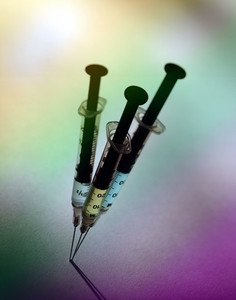Brand-name drug companies are trying to weaken a provision of the US Patient Protection and Affordable Care Act that was designed to open up generic competition in biotechnology medicines and save billions of dollars. The industry, patients and providers are watching closely to see how the FDA will interpret the law, in documents that are expected to be released during late 2011.
Further lobbying over biosimilars
Biosimilars/News
|
Posted 01/04/2011
 0
Post your comment
0
Post your comment

The originator companies—with support from key senators—have approached the FDA with their interpretation of the act. This raised the alarm among generics makers who hope to enter the market as soon as possible. They have responded by presenting their own interpretation of the act to the FDA, also supported by a bipartisan group of four senators.
The FDA is seeking to implement a controversial provision in the affordable care act that creates a process by which it can approve biosimilars—drugs that are to biologicals what generics are to originator medicines. The law gives companies that create a biological 12 years of ‘exclusivity’ and the lobbying is about the meaning of this term.
The provision says generics can enter the market after a brand-name biological has had exclusivity for 12 years. The innovator and biotech firms claim they should get an extra 12 years if their existing medicines are changed in a way that would bolster safety or effectiveness. They also want the FDA to define exclusivity in a way that could further delay generics manufacturers from filing applications for approval to market biosimilars.
The generics firms note that the law says the FDA can accept a biosimilar application four years after a Biologicals License Application was approved and that approval can occur after a 12-year period of exclusivity. Moreover, they maintain there is no specific mention of data or market exclusivity. In their opinion, the 12-year period is that before which a generic company cannot gain access to the safety and efficacy data used to make the original. In other words, the copycat firms can get going with their own version of the product as soon as they like in order to be in a position to bring out their rival product 12 years after the initial licence was granted. They are supported by the GPhA, the US Generic Pharmaceutical Association, which represents many generic firms.
The skirmish, of course, reflects concern over the high cost of biologicals. Big Pharma and biotechs see these expensive medicines as, not only the next frontier in science, but a way of keeping some patent protection going, when many blockbuster drugs are approaching the end of patent.
US Senator John McCain’s website puts the case clearly. ‘We must make every effort possible to prevent further delays and get affordable life-saving medicines into the hands of patients in need. By preventing generic competition, American patients suffer and our federal health programs incur additional costs at a time of record deficits’. ‘The FDA needs to realize that fair competition is as American as apple pie,’ Senator Schumer agrees.
Related articles
US biosimilars pathway unlikely to be used
Exclusivity for biological drugs in the US: what now
Slow progress towards biosimilar approval in US
Twelve-year biologicals exclusivity challenged
FDA holds public hearing on biosimilars pathway
Biosimilars’ hurdles in the US
Source: Health Reform Report, US Senator John McCain, Wall Street Journal
Research
Reaching ESG goals in pharmaceutical development
What is the future for the US biosimilar interchangeability designation
General
Samsung Bioepis wins Pyzchiva case; Regeneron patent rulings threaten foreign biosimilars
Chinese biosimilars go global: growth, partnerships, and challenges
Most viewed articles
The best selling biotechnology drugs of 2008: the next biosimilars targets
Global biosimilars guideline development – EGA’s perspective
Related content
FDA approves third interchangeable ranibizumab biosimilar Nufymco
FDA approves Poherdy (first interchangeable pertuzumab) and Armlupeg (pegfilgrastim) biosimilars
EMA recommends approval for insulin glargine biosimilar Ondibta and denosumab biosimilar Osqay
FDA approves denosumab biosimilars Osvyrti and Jubereq, Boncresa and Oziltus
FDA approves third interchangeable ranibizumab biosimilar Nufymco

Biosimilars/News Posted 09/02/2026
FDA approves Poherdy (first interchangeable pertuzumab) and Armlupeg (pegfilgrastim) biosimilars

Biosimilars/News Posted 27/01/2026
EMA recommends approval for insulin glargine biosimilar Ondibta and denosumab biosimilar Osqay

Biosimilars/News Posted 16/01/2026
FDA approves denosumab biosimilars Osvyrti and Jubereq, Boncresa and Oziltus

Biosimilars/News Posted 07/01/2026
The best selling biotechnology drugs of 2008: the next biosimilars targets






Post your comment